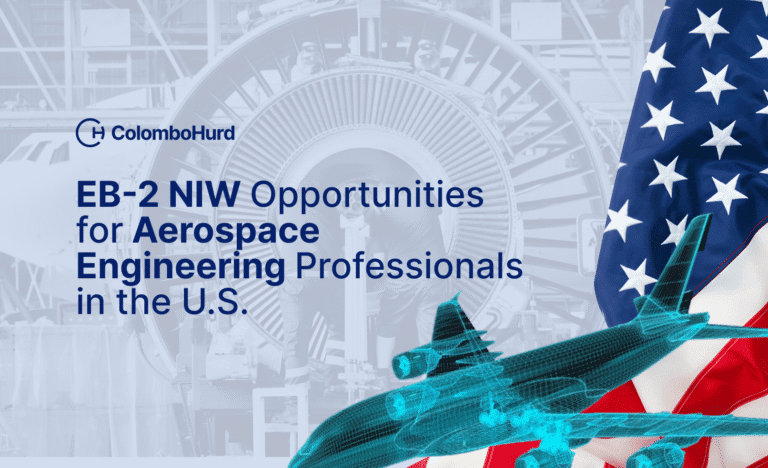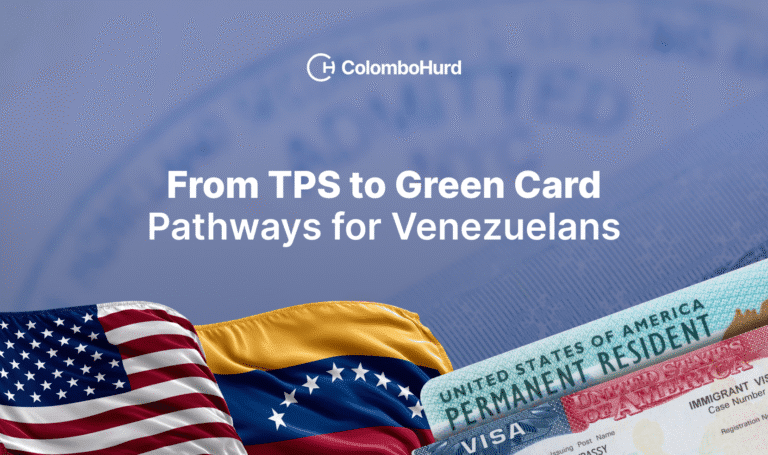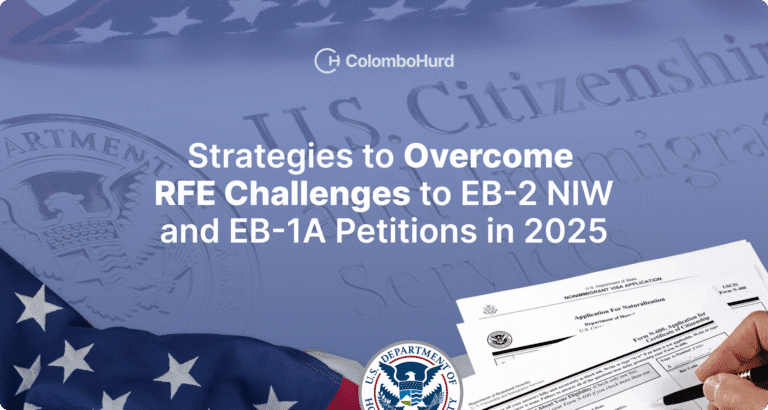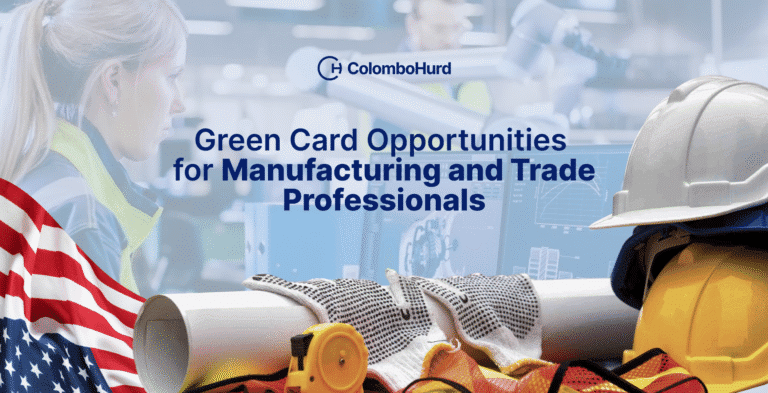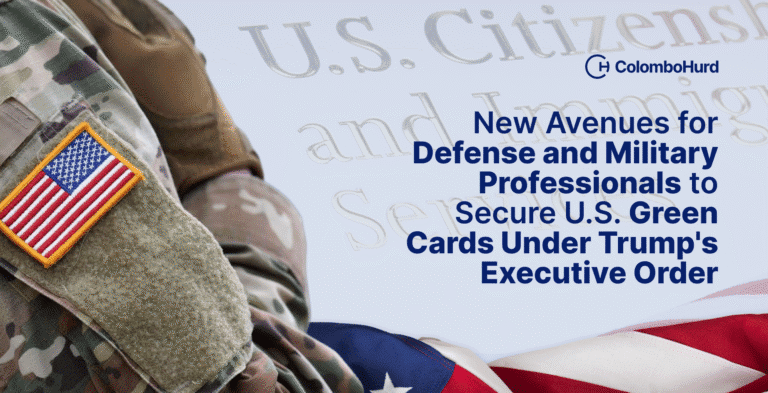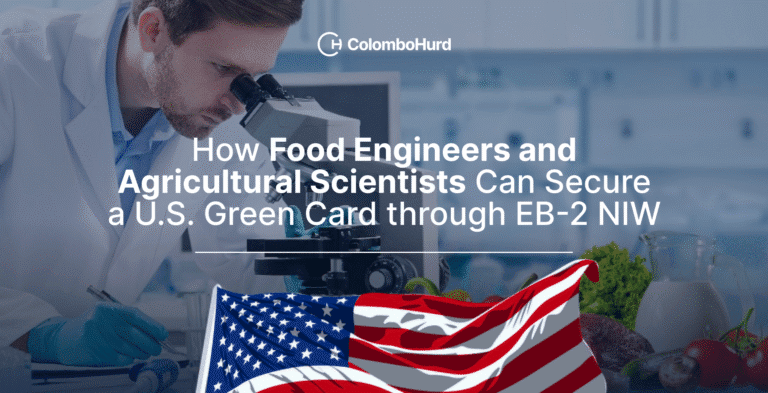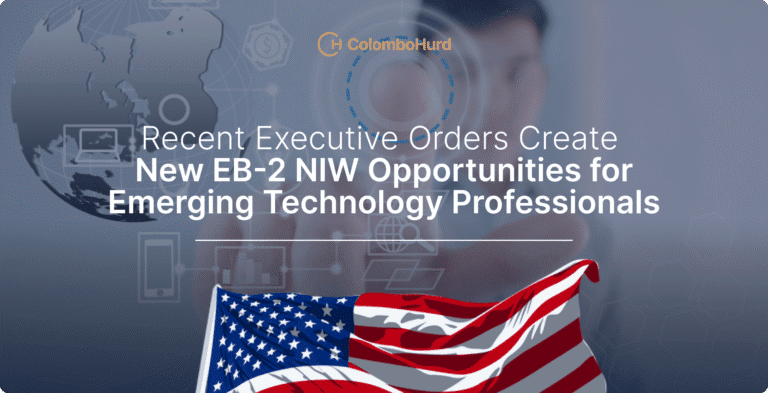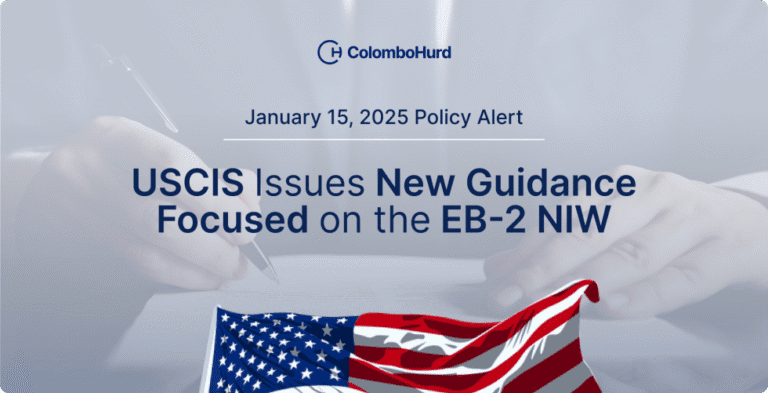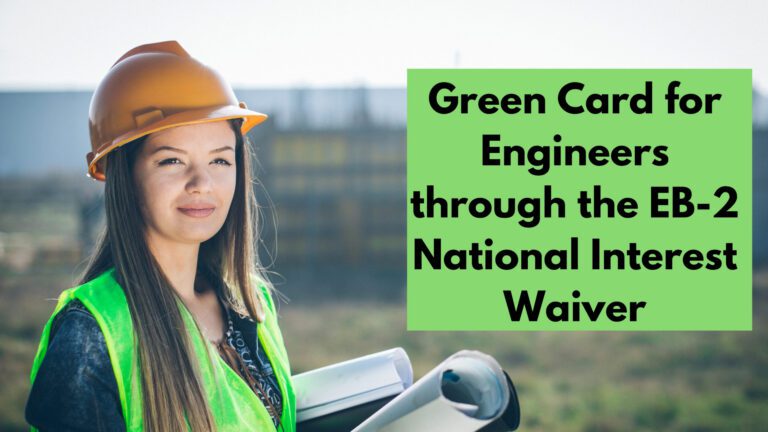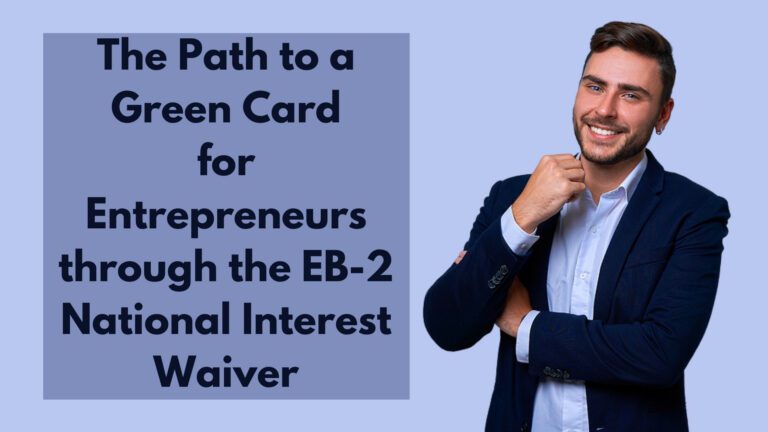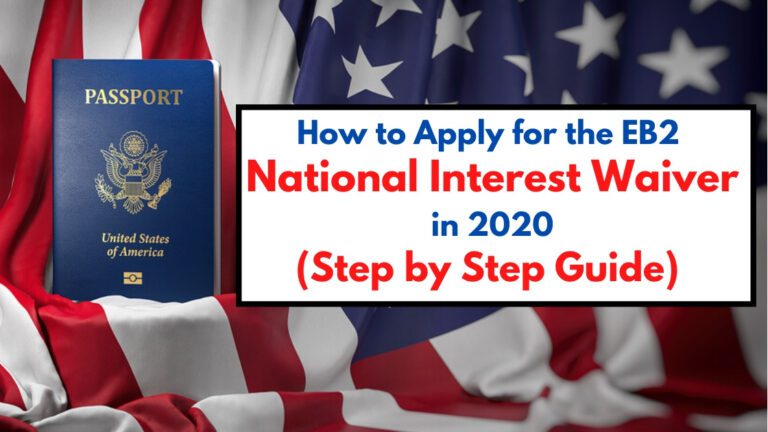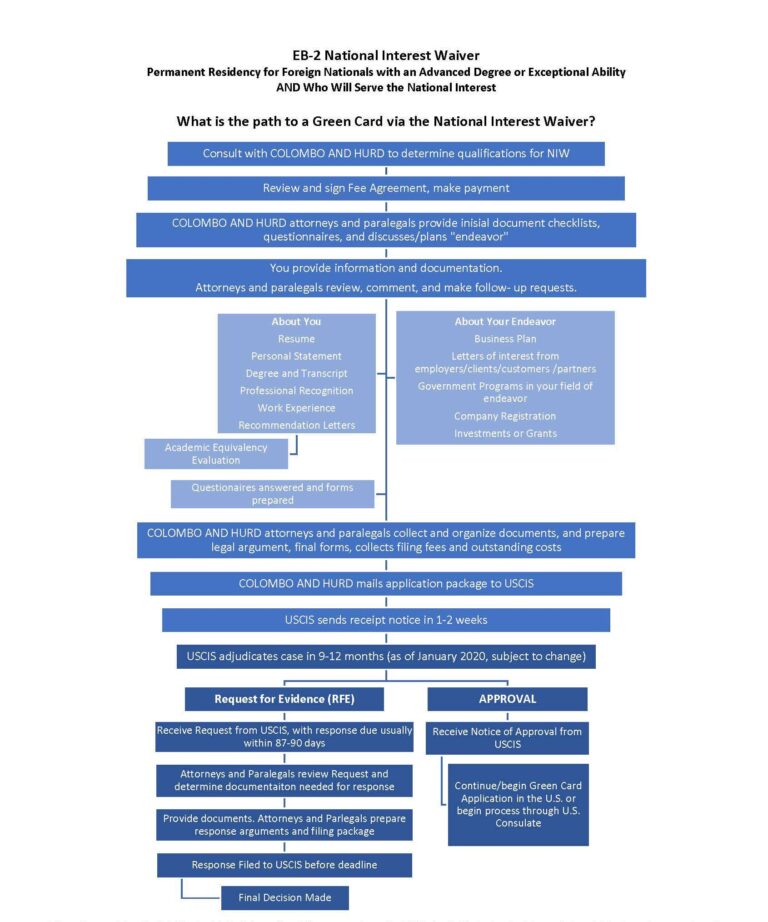If you are a foreign national working in the field of engineering and are considering immigrating to the United States and obtaining a green card, the employment-based second-preference immigrant visa (EB-2) might be the perfect fit for you. Generally, the EB-2 classification allows certain foreign professionals to obtain lawful permanent residence (green card) in the United States by showing that they have an advanced degree (Master’s, PhD, or equivalent). Alternatively, the foreign national can satisfy the EB-2 criteria by demonstrating that he possesses exceptional ability in the field for which the immigration benefit is sought.
Since 2016, the EB-2 National Interest Waiver (EB-2 NIW) process has become a relatively popular option for highly skilled foreign nationals of various industries, including engineering. As a result of a 2016 court decision, the EB-2 NIW has become easier for people to obtain qualification for permanent residence. This process broadened options for applicants and has allowed for more creativity when developing the professional’s endeavor (or project).
The biggest advantage of the EB-2 NIW petition is the waiver of the labor certification process, which is a tedious and lengthy process that requires that all applicants be sponsored by an employer. Qualifying for the NIW allows the applicant to skip such lengthy process without having to obtain the sponsor-employer.
How do I qualify for the first step – EB-2?
Like most U.S. visa programs, the EB-2 process requires applicants to meet certain criteria as outlined by the U.S. Citizenship and Immigration Services (USCIS). The first step in the process is meeting one of the following two criteria:
- Hold an advanced degree (Master’s, Ph.D. or equivalent); alternatively, the applicant can show that he has a bachelor’s degree along with 5 years of progressive work experience in the field; OR
- Possess “exceptional ability” in the field, which “means a degree of expertise significantly above that ordinarily encountered in the sciences, art or business.”
In addition to meeting one of the two criteria above, USCIS will examine the second part of your petition, which deals with the National Interest Waiver.
How do I qualify for second step – NIW?
While the first step in the EB-2 process is rather cut-and-dry, receiving streamlined approval through a special program described below is much tougher.
For USCIS to agree to waiving your labor certification (aka a formal job offer), it must be determined that it is in the best interest of the United States. USCIS will consider several factors, in a balancing test, and will review the evidence submitted to determine whether it is in the nation’s interest to waive the labor certification. You will be able to submit this evidence on your own behalf, making the process a little easier.
The EB-2 NIW process is preferable for many foreign nationals; however, it is much more difficult to obtain.
In 2016, a court decision clarified the requirements for those seeking the NIW process. It its decision, the court established a three-part test that each applicant must satisfy to qualify for the National Interest Waiver.
The three-part test requires that:
- The applicant’s proposed endeavor has both substantial merit and national importance;
- The applicant is well-positioned to advance the proposed endeavor; and
- When balancing all factors, it would be in the national interest of the United States to grant the applicant a waiver of the typical job and labor certification requirements.
USCIS will not limit NIW applications to certain fields. Foreign nationals of any field can apply if the endeavors they are pursuing would benefit the United States. As such, USCIS will only look at the potential prospective impact of the applicant’s undertaking. This will include looking at the national importance of the problems that could be addressed by the applicant through the endeavor. Said endeavor should bring significant benefits to the nation’s economy, for example.
Once USCIS concludes that the endeavor itself would be beneficial to the U.S., the agency then will examine whether the applicant is uniquely positioned to take on that endeavor. Included in this evaluation, USCIS will consider the applicant’s:
- Education, skills, knowledge and record of success;
- Plan or model for future activities;
- Progress toward achieving the endeavor; and
- Interest of prospective users, customers, investors, gov’t entities, etc.
During the application phase, it is not necessary for the applicant to prove that the endeavor will be one-hundred percent successful. They only need to prove that the endeavor would be beneficial to the U.S. and that they are in a good position to make the proposed endeavor happen. A solid business plan as well as financial projections go a long way in providing this.
While many foreign nationals in the engineering field would be good candidates for the EB-2 visa program, the challenging part is proving they are worthy to be approved under the NIW program.
Here is a breakdown of how engineers in a variety of fields could qualify under the NIW program.
Civil Engineers – US Green Card through the EB-2 NIW
Civil engineers are extremely important to the United States. They are responsible for planning and constructing, then designing, maintaining, and operating various infrastructure projects. They contribute to protecting environmental health as well as that of the public. One way they do this is by improving existing infrastructure that, over the years, has been neglected.
Civil engineers can prove that their specific work in the field is of “substantial merit” if they have created a new approach to building bridges, or if they have developed an earthquake-resistant approach to constructing high-rise buildings.
In proving that they are “well-positioned” to advance their work, civil engineers can cite projects they have already conducted that would be like those they are proposing to do in the U.S. If they have received awards or other public recognition for this work, submitting that along with the application would be helpful.
While it is not necessary to provide proof of a job offer with the NIW application, it could serve as a boost to the applicant if they have one in hand. Proof of past employment in the field, as well as letters of recommendation, would be beneficial as well.
Finally, a civil engineer can convince USCIS to grant the waiver based on several factors. If they can prove that the projects that they are proposing are unique to the U.S., then it would not necessarily matter that there are U.S. residents who could do the job, too. The simple fact of how important the job is may override all other factors.
Mechanical Engineers – US Green Card through the EB-2 NIW
Mechanical engineers contribute to several different parts of society. They help to design and analyze, then manufacture and maintain mechanical systems. It is a rather broad field of engineering that includes many disciplines. Included in this are structural analysis, electricity, heating and cooling systems, watercraft and aircraft, weapons, and medical devices.
Mechanical engineers can prove “substantial merit” if they have a new medical device that could help treat patients better and more efficiently. Medicine and its application are at the forefront of most people’s minds right now with the COVID-19 pandemic. Proving that you can contribute to better serving patients with medical devices could be a great way to improve your potential NIW case.
This last point would also work well for the third prong of the NIW test. It would not matter whether there were qualified U.S. workers who could do what you did if you brought unique skills to the medical device field. You could prove this by showing the accomplishments you have already met overseas, and the many benefits they could provide to the U.S.
Electrical Engineers – US Green Card through the EB-2 NIW
Since so many things today are powered by electricity, the field of electrical engineering is also very broad in its reach. The field concerns the design and application of many devices, systems and/or equipment that uses electronics, electromagnetism, or electricity.
“Substantial merit” for electrical engineers could come in the form of immense benefits in the telecommunications industry. The newest technology available for mobile devices, for example, is 5G. It is being rolled out in the U.S. and around the globe to give people access to higher-powered wireless data service. Any ways that your endeavor could contribute to making it more widely available to the entire country would meet the “national importance” criteria.
To prove that you are well-position to advance your work, any years you have spent studying and/or working in the field of telecommunications would certainly help. If you have developed new chips or worked on cell towers to improve their effectiveness or design, that may be enough to meet this requirement.
For the final prong of the NIW test, electrical engineers can show how the field of telecommunications is constantly changing. It is of utmost interest to the U.S. to be ahead of the game so that the county can develop safe, secure, and efficient 5G networks, for example, so it can advance many developments across various industries.
Chemical Engineers – US Green Card through the EB-2 NIW
The focus of chemical engineering is the operation and design of chemical plants, as well as improving their production. Through chemical engineering, commercial processes are developed to create raw materials into products that are useful. An example is taking crude oil and converting it into gasoline into cars.
Chemical plants provide great benefits to the world, but they also provide potentials for disaster. The nuclear disaster in Fukushima, Japan, in 2011, and the infamous Chernobyl disaster in the Ukraine in 1986 are two examples. Chemical engineers can prove “substantial merit and national importance” if they have developed new ways to help run chemical plants more safely.
If a chemical engineer can prove that they have had experience working with robotics and artificial intelligence to identify problems at a chemical plant before they become disasters, they could meet the second NIW requirement. Again, any awards, certification, job experience and/or public notoriety would go a long way in proving this.
In the third prong, chemical engineers can discuss how there can never be enough safety around chemical plants and their sector in general. Even if there are plenty of qualified candidates in the U.S., therefore, it would be beneficial for America to have even more talent.
Systems Engineers – US Green Card through the EB-2 NIW
Systems engineering is becoming ever more important today. It focuses on designing, integrating, and managing complex systems over their full life cycles. This field develops engineered systems that include several different components that must run in synergy to perform a function that is useful.
Logistics is a huge field of development in systems engineering today. While logistics is often thought of for just shipping companies, it can apply in any number of industries. Systems engineers, therefore, can prove “substantial merit” if they have contributed to the advancement of more efficient and effective logistics processes.
If you have contributed to these advancements for another company in your country, proving your important role through job proof and/or job title would be a great way to meet the second prong. Media stories about how certain companies have been able to take advantage of the development for the betterment of their customers is a great way, too.
Logistics is a field that is only going to advance in the coming years. Therefore, meeting the third prong of the NIW criteria could include forecasts of the industry, and the importance of streamlining processes. Distribution and administration of the COVID-19 vaccine, for instance, will have a strong logistics presence.
Aerospace Engineers – US Green Card through the EB-2 NIW
Aerospace engineering is concerned with developing spacecraft and aircraft. It can also touch on avionics, but on the electrical side of the field. Many people refer to this field of engineering as rocket science.
The importance of flight cannot be understated in today’s world. From commercial aircraft moving products, or allowing people to travel all over the world, to space exploration, there are several areas of potential benefit.
Proving the work has “substantial merit” could show how you have worked on space exploration projects in the past. The U.S. is always looking to advance their space exploration, most recently with new trips to Mars. If you can prove you have experience in this area, that could help prove your NIW case.
Experience in aerospace engineering would help significantly. This could include working with your country’s space exploration program. It could also include extensive research you have done on the field. Or it could include experience for another company that you would then be using for a job in the U.S., say at NASA, for instance.
Having advanced aerospace engineers is always of benefit to the U.S. You could prove that your work, if successful, would make space exploration less expensive by returning spacecraft to Earth safely could prove the third prong of your NIW application.
Biomedical Engineers – US Green Card through the EB-2 NIW
Biomedical engineering is focused on developing principles and designs that will apply to medicine and biology for the purposes of healthcare. Biomedical engineers were heavily involved in the development of COVID-19 vaccines. In prominent examples, the two vaccines currently improved in the U.S. use new mRNA technology to create the vaccine.
If you have worked extensively on vaccines, then, you could prove your “substantial merit and national importance” at the same time. While the COVID-19 vaccine is front of mind right now, further development of other vaccines and therapeutics will remain pertinent now for years to come. Any proof that you have extensive research in the field or experience in development would help your case.
Proving you are well-positioned could require letters of recommendation from current bosses. If you were part of research studies or the development of new vaccine or therapeutic technologies, copies of organizational charts with a description of your specific position would work in your favor.
Finally, to meet the third prong, you could prove how the U.S. will continue to rely on biomedical engineers to not only fight future virus outbreaks, but to prevent them from happening in the first place. It could center on the focus of vaccines, or it could focus on therapeutics associated with helping people recover quickly.
If you are interested in in the EB-2 National Interest Waiver, contact our office today to schedule a consultation. Initial consultations can be scheduled online, or by calling our Orlando office at (407) 478-1111 our Tampa office at (813) 444-1114 or our Miami office at 305-455-0590. We assist foreign nationals from all over the world file successful NIW applications and would like to provide a thorough analysis concerning the specifics of your matter to determine if you are qualified to apply.
